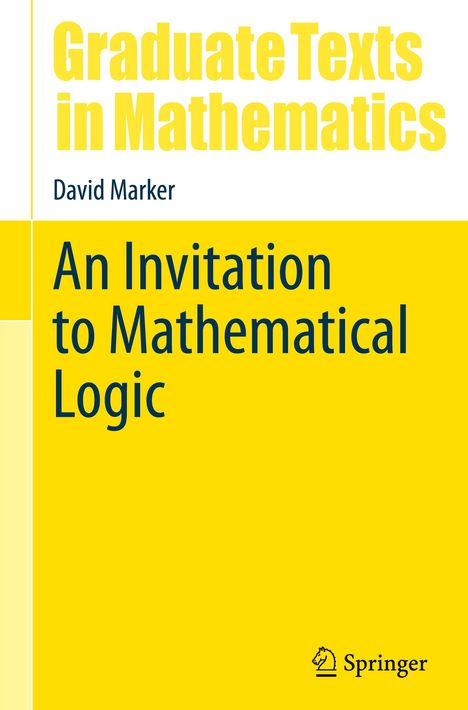David Marker: An Invitation to Mathematical Logic, Gebunden
An Invitation to Mathematical Logic
Buch
lieferbar innerhalb 2-3 Wochen
(soweit verfügbar beim Lieferanten)
(soweit verfügbar beim Lieferanten)
Aktueller Preis: EUR 74,66
- Verlag:
- Springer Nature Switzerland, 05/2024
- Einband:
- Gebunden, HC runder Rücken kaschiert
- Sprache:
- Englisch
- ISBN-13:
- 9783031553677
- Artikelnummer:
- 11863392
- Umfang:
- 376 Seiten
- Nummer der Auflage:
- 2024
- Ausgabe:
- 2024
- Gewicht:
- 797 g
- Maße:
- 241 x 160 mm
- Stärke:
- 25 mm
- Erscheinungstermin:
- 7.5.2024
- Hinweis
-
Achtung: Artikel ist nicht in deutscher Sprache!
Klappentext
In addition to covering the essentials, the author s intention in writing this text is to entice the reader to further study mathematical logic. There is no current standard text for a first graduate course in mathematical logic and this book will fill that gap. While there is more material than could be covered in a traditional one semester course, an instructor can cover the basics and still have the flexibility to choose several weeks worth of interesting advanced topics that have been introduced. The text can and will be used by people in various courses with different sorts of perspectives. This versatility is one of the many appealing aspects of this book. A list of suggested portions to be covered in a single course is provided as well as a useful chart which maps chapter dependencies. Additionally, a motivated student will have ample material for further reading.New definitions, formalism, and syntax have been streamlined to engage thereader quickly into the heart of logic and to more sophisticated topics. Part I and Part IV center on foundational questions, while Part III establishes the fundamentals of computability. Part II develops model theory, highlighting the model theory of the fields of real and complex numbers. The interplay between logic and other areas of mathematics, notably algebra, number theory, and combinatorics, are illustrated in Chapters 5, 6, 8, 14, and 16. For most of the text, the only prerequisite is mathematical maturity. The material should be accessible to first year graduate students or advanced undergraduates in mathematics, graduate students in philosophy with a solid math background, or students in computer science who want a mathematical introduction to logic. Prior exposure to logic is helpful but not assumed.

David Marker
An Invitation to Mathematical Logic
Aktueller Preis: EUR 74,66
